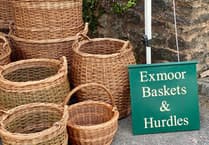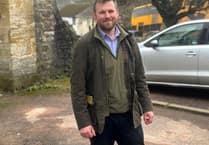Somerset Wildlife Trust and the district council (SWAT) are working in partnership on the pilot project.
The council will also be setting aside wild areas in its Green Flag accredited parks in Taunton and Wellington.
The initiative is part of the council’s commitment to protecting and improving biodiversity, identified as a priority in the emerging climate change strategy.
In establishing ‘wilder’ areas on council-owned land and within its parks, the wildflower meadow project hopes to help boost biodiversity, supporting pollinator species in particular.
It will also help to connect existing green spaces which will improve the resilience of the district’s landscape as a whole in the face of a warming climate.
The pilot areas are amenity spaces that are traditionally cut every few weeks during the summer months.
Cllr Peter Pilkington, executive member for climate change, said: “The council is committed to creating a more sustainable future for everyone, putting climate and environmental responsibility at the heart of everything it does.
“We are excited to be developing this project with the Somerset Wildlife Trust who share our belief in the need for ownership and involvement around climate change.
“The council currently cuts an area the size of Belgium in the course of a season, but we are looking to let some of these areas ‘re-wild’ by letting the grass grow longer and sowing wildflowers.
“This taller grass will allow a range of grass species to develop, increasing the biodiversity in the area. Tall grass is just as important for wildlife as wild flowers, as it gives animals shelter and somewhere to hunt, breed and feed.”
Wildflower meadows provide shelter and food for important pollinators, and in particular, bees. There are over 250 species of bee in the UK and they play a vital part in supporting the ecosystem. The UK has lost 97 per cent of its wildflower meadow since the 1930s.
Jolyon Chesworth, head of engagement at Somerset Wildlife Trust, said: “There are around half a million football pitches worth of gardens in the UK, plus parks, playing fields, road verges and roundabouts. If managed correctly, our towns and cities can act as havens for wildlife, creating Nature Recovery Networks that connect urban and rural areas to help restore wildlife.
Insects, including bees and butterflies, are dying out up to eight times faster than larger animals and 41 per cent of insect species face extinction.
“However, this initiative to help sow wildflower meadows and ‘re-wild’ our parks can play a crucial part in stopping declines. Importantly, these areas won’t just provide a rich source of food but will provide habitat throughout the year for animals to shelter.
“It’s not just good for wildlife but for people as well, the sight of a wildflower meadow, teeming with bumblebees and butterflies, enhances our green spaces and our enjoyment of them and all the evidence suggests that towns rich in wild places and wildlife also boost our own wellbeing.”





Comments
This article has no comments yet. Be the first to leave a comment.